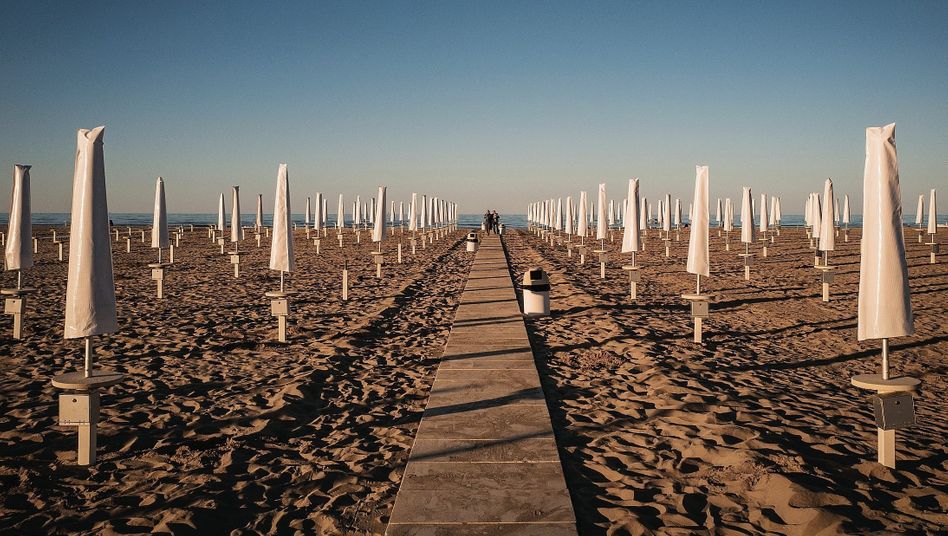
PEJOURNAL – Germans are finally able to travel to their favorite holiday destination again: Italy. In the tourist city of Rimini, hosts are setting up lounge chairs and putting out the umbrellas, but even so, this summer won’t be the same.
Italy’s borders have been open again since June 3 and the German government’s blanket travel warning has been lifted as well, including for Italy, a country that was especially hard-hit by the coronavirus. Germans will once again be permitted to travel south – if they dare. But will they? That’s the question people along the Adriatic coast want to know.
Normally, hundreds of thousands of people travel in early summer to Rimini, where in 1843 the counts Alessandro and Ruggero Baldini built the first wooden bathing establishment with six cabins – the “stabilimento privilegiato di bagni.” Later, a spa and the Grand Hotel were added.
Subsequent generations developed the place into one of Europe’s largest tourism machines, attracting millions of vacationers every year, roughly a third of whom come from abroad, mostly Germany. For years, the business model was simple: more guests, more umbrellas, more hotels.
But that no longer works. The Adriatic Sea is on the verge of the summer of the century. Not because of the weather, but because safety regulations have changed pretty much everything. Vacationers must observe social-distancing rules, avoid crowds and wear masks in hotel lobbies, with adherence to these rules more strictly monitored than in Germany. Beach parties are a thing of the past, as are the crowds of people rushing for their aperitivi. It’s going to be a quiet summer.
One might expect Rimini’s mayor to be at wit’s end as a result, but Andrea Gnassi is in a good mood. The former club manager stands on the town hall’s balcony and points to the ancient Via Flaminia. The road leads through the triumphal arch built for Augustus and extends all the way to Rome.